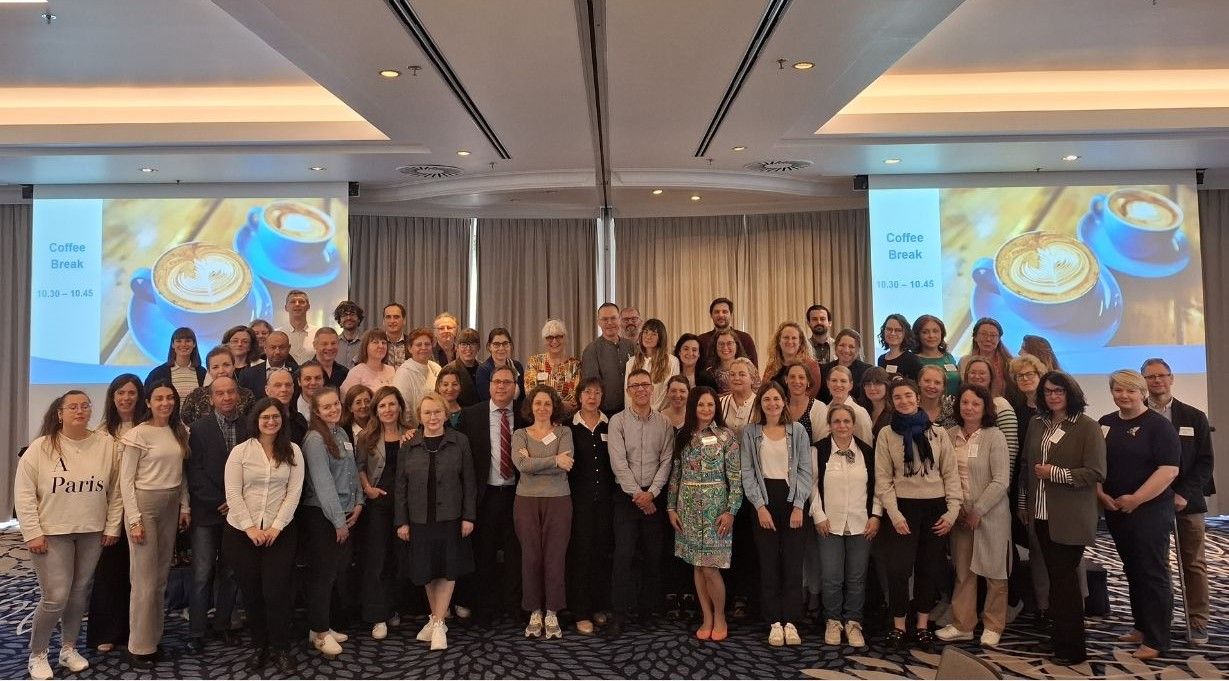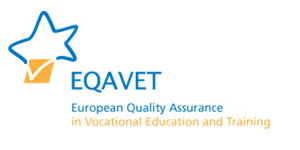EQAVET annual meeting, Brussels, 13-14 June 2024


The annual meeting of member states of the European Network for Quality Assurance in Vocational Education and Training, EQAVET, took place in Brussels on 13-14 June 2024. The meeting was attended by 78 representatives of National Reference Points (NRPs) from 33 countries. From Greece, Mr Antonios Glaros, Head of the Communication and Development Directorate of EOPPEP and member of the EQAVET steering committee, participated at the meeting.
During the meeting which coincided with the conclusion of the European Year of Skills, many interesting topics were discussed: the DG Employment assessment of the European Qualifications Framework (EQF) and Europass, CEDEFOP's comparative study on the monitoring of the National Implementation Plans (NIPs) of the 2020 Council Recommendation on Vocational Education and Training (VET) for sustainable competitiveness, social fairness and resilience, OECD study on Quality Assurance in Adult Education and Training as well as presentation of activities in terms of the EQAVET Quality Framework implementation, by representatives of national reference points (NRPs).
In particular, regarding the evaluation of the two emblematic European policies and related tools, namely EQF and Europass, the central role of the European Qualifications Framework is highlighted, as a platform that ensures transparency, portability and comparability of citizens' qualifications between Member States, which even goes beyond European borders. However, it highlights the need to broaden the application of the framework so that, in addition to qualifications from the formal education system, qualifications acquired through training and non-formal learning can be also referenced, also in the form of micro-credentials or international qualifications.
Regarding the Europass platform, despite its undeniable usefulness in highlighting, codifying and presenting qualifications for thousands of citizens across Europe, it remains a challenge to simplify the application in order to be more user-friendly. In addition, its more effective interconnection with other platforms and networks (European Youth Portal, European Education Area Portal, Euraxxes, Digital Skills and Jobs Platform, etc.) as well as the utilization of Artificial Intelligence could be an asset, in order to provide individualised services to end- users.
CEDEFOP presentation focused on the ongoing assessment and comparative analysis of Member States' measures and policies in relation to the 2020 Council Recommendation. From the initial findings, it is clear that from 2023 onwards there is a shift towards the implementation of specific national policies aimed at sustainable development as well as the green and digital transition. The challenges for the coming years include the development and implementation of Quality Assurance systems in Continuing Vocational Training and Adult Education, the sustainability of Work Based Learning (WBL) and Apprenticeship systems as well as the upgrading of trainers' qualifications to respond effectively to the new challenges, the enhancement of entrepreneurship and the development of competences for a democratic culture.
The OECD representative referred to the obvious benefits of developing and implementing Quality Assurance Systems in Adult Education and Training: upgrading the quality of curricula, more effective career guidance, accountability and transparency of VET providers with regards to public funding. On the other hand, the implementation of integrated quality assurance methodologies requires significant investment in resources, while adult education and training systems are by definition complex and heterogeneous.
Finally, after the presentations of representatives of the national reference points of Romania, Spain and Bulgaria, on current developments and national actions related to quality assurance in various aspects of Vocational Education and Training, the meeting concluded with the presentation of the programming and in particular the communication activities of the network, by the EQAVET secretariat.
 English (UK)
English (UK)  Greek (Greece)
Greek (Greece) 